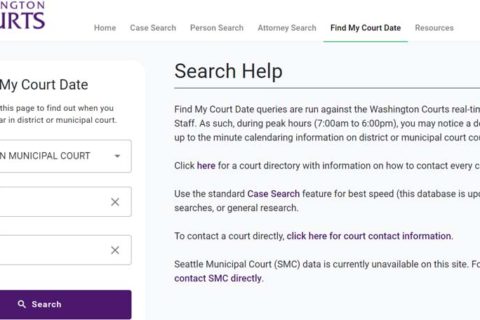In addition to providing public court records, Wisconsin also provides public access for clerks of courts. Having an important role in Wisconsin’s judicial system and being responsible for various court record-keeping functions, Clerks of Courts are elected to a four-year term in county elections.
For some reason, you may happen to look for information about Wisconsin Clerks of Courts. Thanks to Wisconsin’s public access to the Clerks of Courts database, you can now find it easily through its official website. Okay, let’s dive into our page to find out the guide!
How to Access Wisconsin Clerks of Courts?
The Wisconsin Clerks of Courts database can be directly accessed through the Wisconsin Court System website (https://www.wicourts.gov/courts/circuit/clerk.htm). Then, you can click the “clerks of circuit court directory” link. Or you can get direct access to the Clerks of Courts here. https://www.wicourts.gov/courts/circuit/clerkcontact.htm
On the Clerks of Courts page, you can see a table that lists Wisconsin Clerks of Courts along with information, including:
- County
- Clerk’s Name
- Clerk’s Contact Information
As of this writing, there are approximately 75 clerks of court serving in each county in the state of Wisconsin. Well, if you really need to get in touch with a clerk in a certain county, you can contact them through the available contact information. In addition, you can also visit the official website of a certain county to find more information about the clerk of court.
What are the Duties of a Wisconsin Clerk of Court?

The Wisconsin Supreme Court and state law set records for the court. The rules require the Wisconsin clerks of courts to:
- Keep records of all documents submitted to the court.
- Collect various fees, fines, and confiscations ordered by courts or determined by law.
- Keep records of court proceedings.
- Set and promote procedures for reasonable access to court records (for circuit clerks or courts).
- Meet responsibility for fiscal affairs with accounting practices that are accurate, effective, and efficient (for circuit clerks or courts).
- Be competent in utilizing financial software programs to handle finances efficiently.
- Keep confidentiality of records as required by law and court orders.
- Be willing to be involved in a variety of activities and work daily with many different people.
- Serve as the administrative liaison between the judiciary, regional councils, and the public.
- Cooperate with other court staff to ensure that courts function effectively and efficiently.
- Be responsible for various administrative matters at the circuit court level, including developing effective policies and procedures, recruiting and retaining competent staff, and budgeting and administering court resources.
What Divisions is the Clerk of Courts Responsible for?
There are some divisions under the clerk of courts responsibility, including jury management. This includes a much more efficient process of selecting and notifying potential jurors based on automation in court. It has also improved record-keeping for jury management.
In addition, clerks of courts also work with the Legislature and the director of state courts to continuously improve jury management. In this case, the most notable improvement is the reduced time it takes for judges to serve.
As of July 1, 1997, Wisconsin citizens who are clerks of court elections are obligated to serve no more than one month of jury management service in a four-year period.
Last but not least, the office of the clerk of circuit court becomes a problem-solving center, and certain parties will depend on it, including the legal community, law enforcement, local, state, and federal agencies, businesses, and the general public.

A bookworm and researcher especially related to law and citizenship education. I spend time every day in front of the internet and the campus library.





